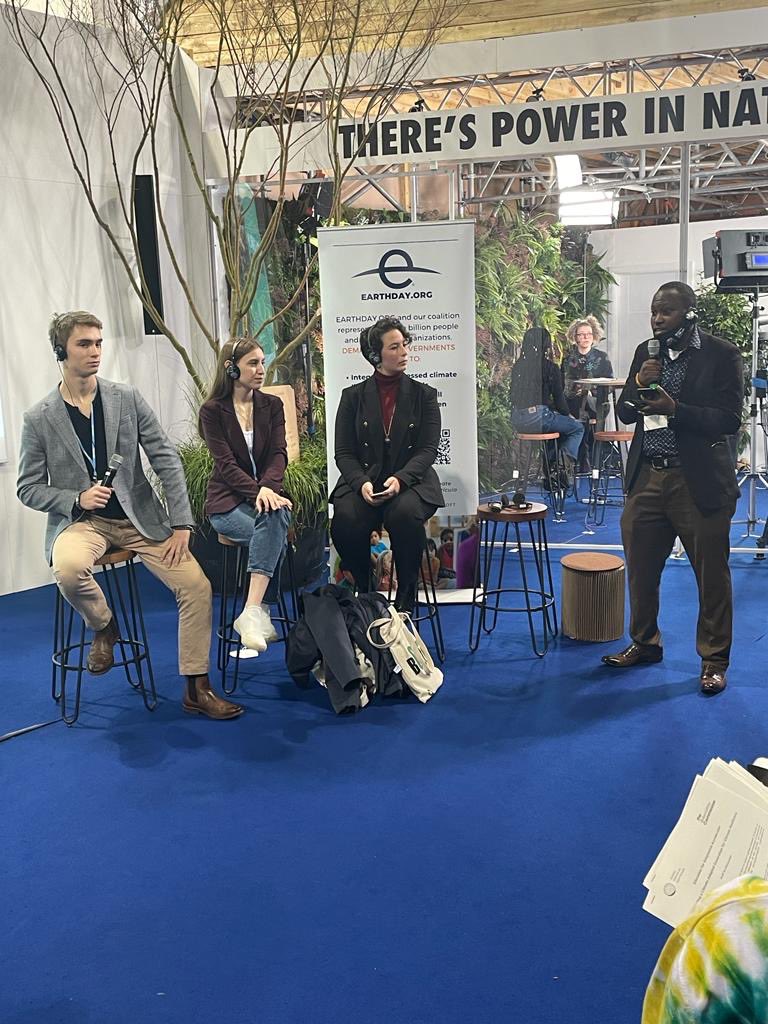by avery Sherffius, NOVEMBER 12, 2021
The future of our planet and humanity is in a precarious state. Accelerating climate change is pushing the planet closer and closer toward climate tipping points — and humans are to blame.
Where politicians have fallen flat to address climate change, youth have risen up to demand action. Even though youth aren’t responsible for climate change, they must deal with the consequences. Compared to babies born in 1960, those born after 2010 will experience around four times more extreme climate events in their lifetimes.
The 26th UN Convention on Climate Change (COP26), which took place over the past two weeks, has hosted discussions and negotiations centered around meeting the targets of the Paris Climate Accord and mitigating the effects of climate change. As an official observer at COP26 and a lead partner in the Nature + Zone pavilion, EARTHDAY.ORG has advocated for critical climate solutions — including compulsory, assessed climate and environmental education.
Guaranteeing a healthier future for our planet means making sure that youth are educated on the climate crisis, equipped with the tools to solve these issues, and meaningfully included in all decision making.
On November 5, the panel, Young Climate Activists: Why Climate Education and Civic Skill Building are the Keys to Climate Justice and Equity, highlighted youth leaders and their demands to governments. Moderator Derrick Mugisha, regional director of EARTHDAY.ORG, Africa, was joined by four inspiring youth activists: Giulia Pinna, secretary general of The Hague at International Model United Nations; Alexandria Villaseñor, founder of Earth Uprising; Johnny Dabrowski, co-founder of the Climate Education Team at Fridays for Future; and Ayisha Siddiqa, co-founder of Polluters Out.
As the panel commenced, Dabrowski mentioned how climate education can be a source of unity for people around the world. Climate change affects everyone, making it a truly global issue. He also noted that raising a generation that can handle this issue also entails raising a generation that is capable of compromise, understanding, and the ability to communicate across borders.
When talking about why governments have yet to implement climate education, he stated, “Climate education has the same goal, it’s uniting people… There’s a fear of it because it is uniting people… because we all know that the fight for the climate is beyond division, or it should be.”

When asked about methods to advocate for climate literacy, Pinna raised a powerful point by saying, “We are such a powerful group, and if we stick together, we’ll do a magnifying effect.”
According to Siddiqa, “People’s bodies know what is going on. They may not be able to articulate it, but they know climate change is happening. Climate education is the way in which we will learn to articulate our bodies’ feelings.”
Climate education is something everyone who wants a better future should rally behind. In a recent announcement, Ministers of Education and Ministers responsible for addressing climate change of Parties to the United Nations Framework Convention on Climate Change (UNFCCC) have committed to integrate climate education into formal education systems and collaborate with diverse stakeholders.
As we look beyond COP26, it’s crucial to maintain pressure on leaders to follow through on these commitments. EARTHDAY.ORG has compiled a climate literacy communications toolkit with key messaging and research on climate literacy to help you spread the word.
Join us, and millions around the world, in advocating for climate literacy and a better future for our planet.
(Sources: EarthDay)














Đăng nhận xét